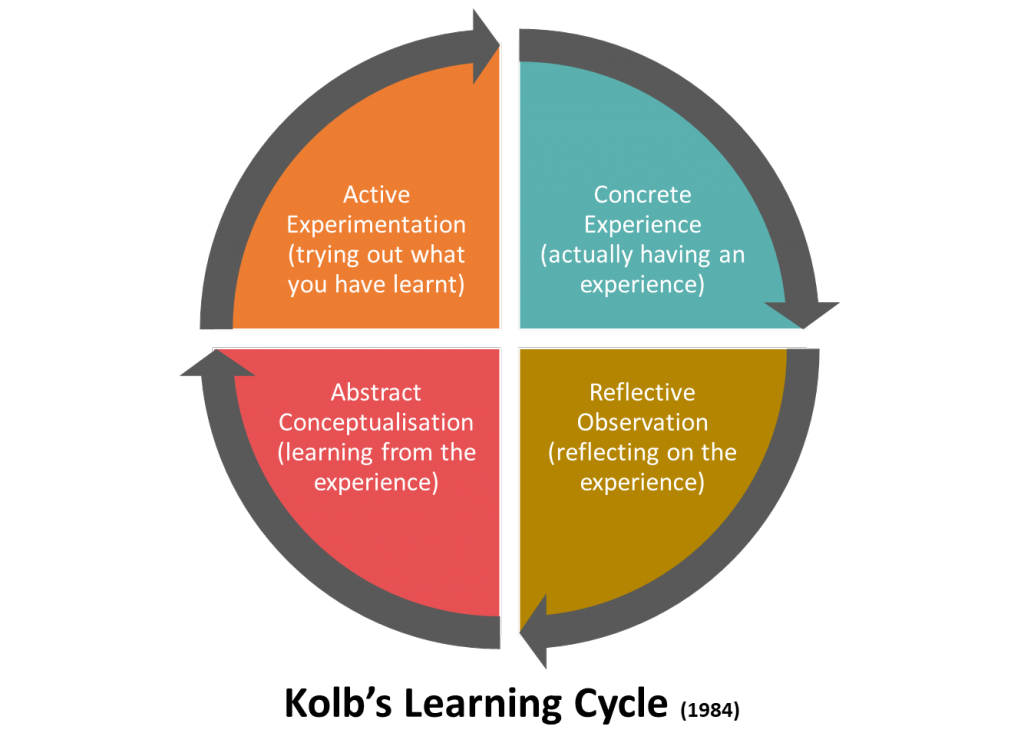How to Create Effective Learning Within Your Organisation
19 Jun 2018To ensure effective learning is taking place, organisations should consider reviewing what is on offer for each employee and the different methods of learning available. You will not want to waste time and resources trying to teach employees in ways that are not going to be the most beneficial. Creating effective learning enables the right learning techniques to be applied to the right employees to make learning as efficient as possible.
How to Determine Effective Learning Techniques
One of the best-known learning techniques is from Kolb’s Learning Cycle (1984).
The Learning Cycle claims that effective learning happens when the individual being trained has experienced the training either in a hands-on capacity or within a training course. They then have interpreted this for themselves and gone onto digest it and understand what they have been taught. The last step is implementing their new knowledge.
To understand this cycle more clearly an example is when a child learns that a fire is hot. They learn by putting their hand near to a fire and it will hurt them and therefore they will not do this again. Thereby effectively completing the Learning Cycle.
Learning Styles
Understanding that different individuals have different preferences is key to Honey and Mumford’s (1982) Learning Styles theory. They developed the idea that as individuals, we prefer one of the four stages of Kolb’s Learning Cycle more than the others. This is to say that we are more receptive to training in our preferred element.
Theorist
These individuals like the theory behind things. They need to draw upon concepts and facts to fully engage with learning. They prefer to be challenged intellectually by information and create their own theory or conclusions.
Methods of Learning
- Models
- Quotes
- Facts
- Statistics
- Theories
- Background Information
Reflector
These people like to learn by watching others. They prefer a back-seat role where they can see what others are doing. They like to be at the edge of activities to observe, this allows them to collect multiple pieces of data and draw their own conclusions from watching activities from different perspectives.
Methods of Learning
- Self-analysis
- Observation
- Feedback
- Coaching
Activist
These learners like to be thrown into the deep end. They love to be put straight into activities. They have an open-minded approach and are open to new experiences and different ways of working. They often find success in crisis situations.
Methods of Learning
- Problem Solving
- Puzzles
- Role play
- Group Activities
Pragmatist
Pragmatists need to see how things work in the real world. They find it hard to relate to activities that are not true to life. They constantly seek an opportunity to put what they are learning into practise to see if it holds up. They focus on outputs and implementation.
Methods of Learning
- Problem Solving
- Ability to test the training
- Case Studies
- Discussion
Using learning styles to facilitate effective learning
Effective learning is the result of identifying what learning style suits an individual and allowing them to learn in that way. There are many free online Learning Style Questionnaires. It would be beneficial before starting any training within the organisation to discover how your employees learn the most efficiently. The Learning Styles are a very good indicator for how well employees will respond to certain training methods. Despite this, just because they have a preference does not mean they are incapable of learning through other methods. When conducting training, the focus should always be on the training and trying to effectively deliver it to employees. Sometimes training cannot be delivered in a way that some employees will enjoy that is just a fact of life. But, for the most effective learning it is beneficial to try and alternate learning styles.







